Nutriera Experts were invited to give lectures to Overseas Marine Fishery Breeding & Aquaculture Training Class in the Republic of Costa Rica
By the invitation of the Republic of Costa Rica, the China Foreign Aid Training Program “2018 Costa Rica Marine Fishery Breeding & Aquaculture Training Class” hosted by the Ministry of Commerce of the People's Republic of China and undertaken by the Fujian Ocean Research Institute was held in San Jose, Costa Rica. Mr. Zhang Taizhuo, Deputy General Manager of Guangdong Nutriera Group, was invited to give lectures to the training class.
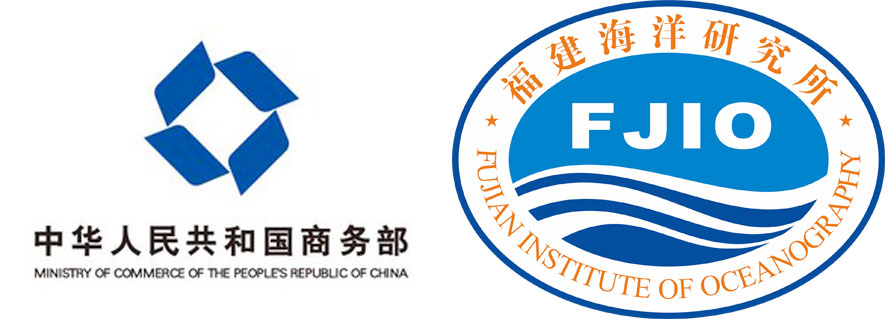

The training course attracted more than 100 participants from Fisheries and Aquaculture Association, National Training Center, National Animal Health Service Center, National Environmental Science and Technology Agency, the Pacific Ocean Park,Artisanal Fisheries Association, Fisheries Cooperative, Atlantic Coastal Port and Economic Development Management Committee, University Presidents Committee, University of Costa Rica, National University, National University of Distance Education, National University of Science and Technology, non-governmental organizations, universities, farms and enterprises of Costa Rican. The training course lasted for 14 days. In response to the requirements of Costa Rica, this training focuses on seawater fish breeding, sea shellfish culture, shrimp culture techniques and models, water quality control and disease prevention etc.
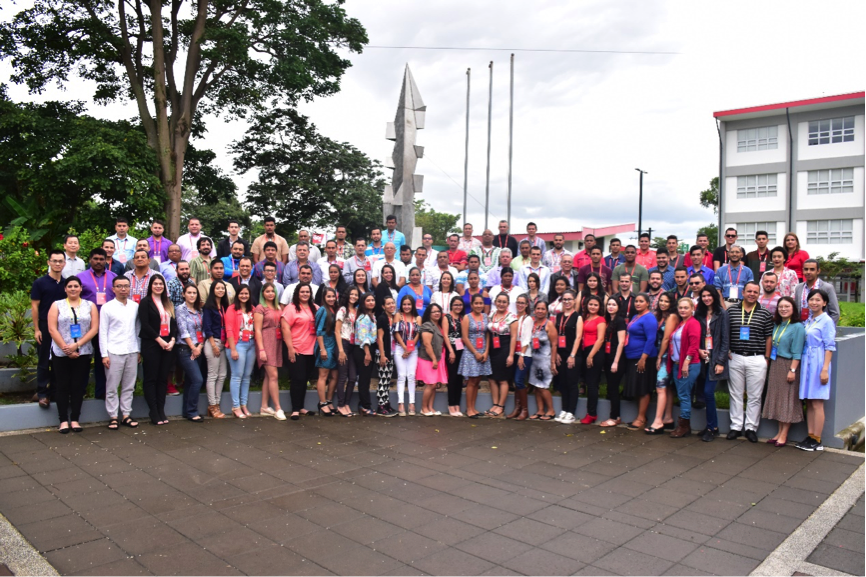
Opening Ceremony
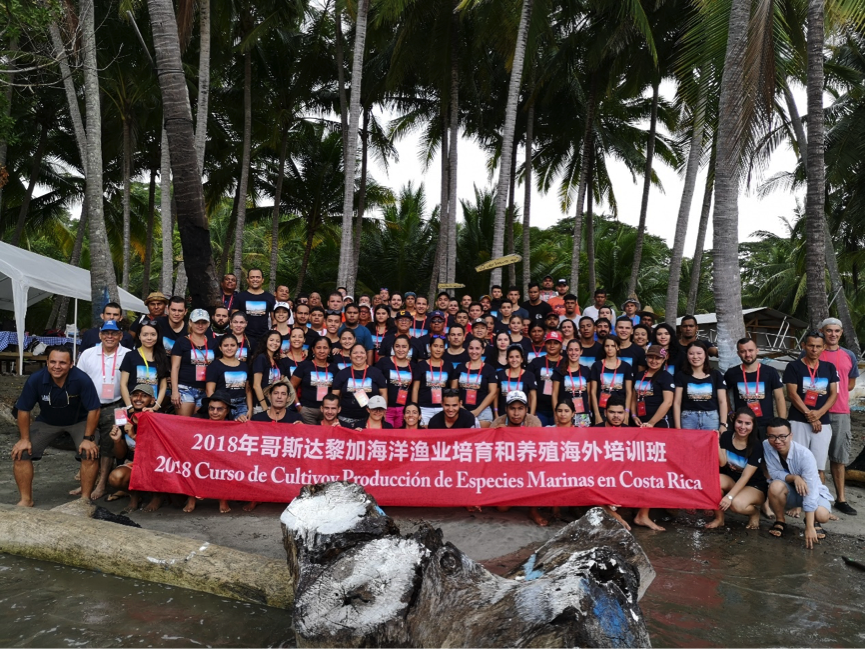
Seawater aquaculture base inspection
From August 12th to 19th, Mr. Zhang Taizhuo, Deputy General Manager of Guangdong Nutriera Group, gave lectures on the “Development status of global shrimp culture industry”, "Shrimp culture technology and culture mode" and "Water quality control and disease prevention of shrimp culture" etc.
Mr. Zhang Taizhuo first gave lectures to the current development of the global shrimp culture industry, and made the participants fully aware that the global consumption of shrimps is increasing year by year. The huge consumer market demand will continue to promote the steady development of shrimp farming industry. Shrimp is a good development prospects in all aquaculture species.
Secondly, he also gave details on the specific operation procedures of shrimp culture and the technical key points of shrimp culture modes in different countries in Southeast Asia to allow trainees have a clear understanding and mastery of the shrimp culture process and they can apply what they have learned. Trainees would be skillful to operate and guide farmers in production operations. At the same time, the key points of the main culture mode of shrimp in Southeast Asia were compared and analyzed, from which the participants learned the advantages and disadvantages of different shrimp farming modes, and combined with the environmental conditions of Costa Rica to design a shrimp farming mode which suitable for Costa Rica's national conditions and sustainable development.
Finally, he taught the trainees the key points of the solution to the common water quality problems in shrimp farming and the technical aspects of disease prevention. His lectures focused on the combination of theory and practice, and interacted with the participants to enable them to master the expertise which they want to learn in a relaxed and enjoyable classroom.
During the course, he also visited the shrimp farms in Costa Rica with the trainees and communicated with the managers of shrimp farms on specific issues related shrimp farming process and provided valuable suggestions.
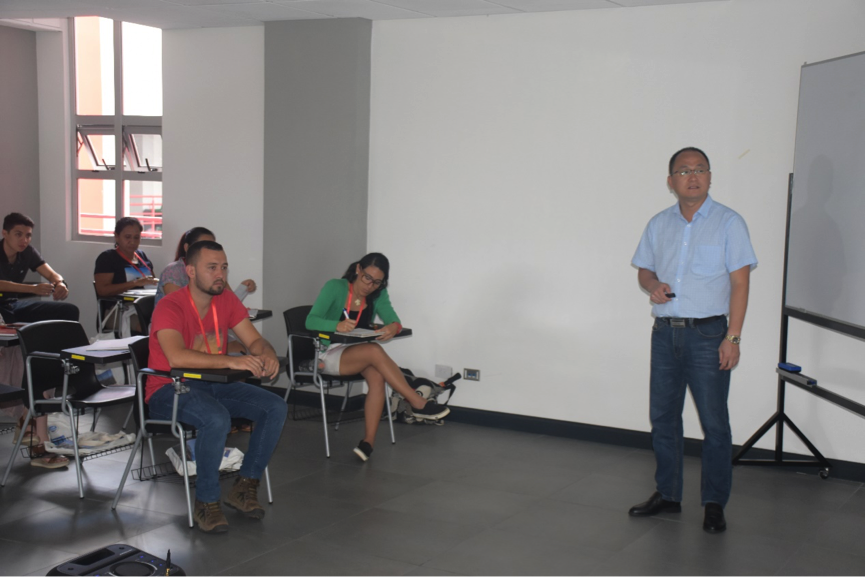
Lectured with "Global Prawn Culture Industry Development Status"
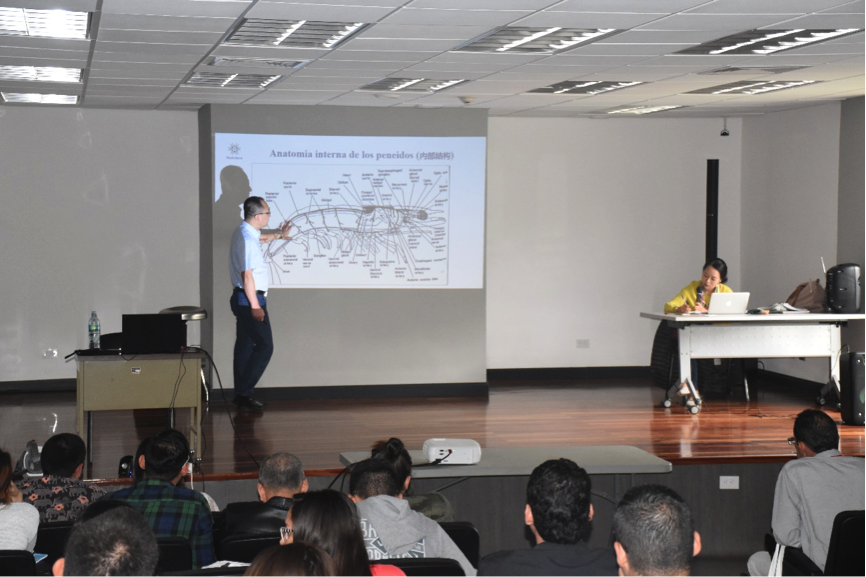
Lectured with "Shrimp Farming Techniques and Farming Modes"
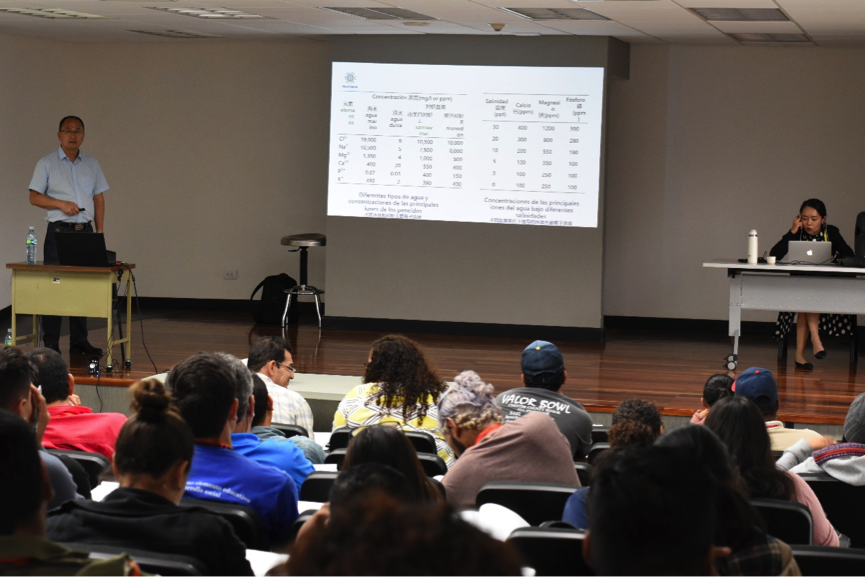
Lectured with "Water Quality Regulation and Disease Prevention and Control of Shrimp Culture"

Trainees attending lectures and questioning
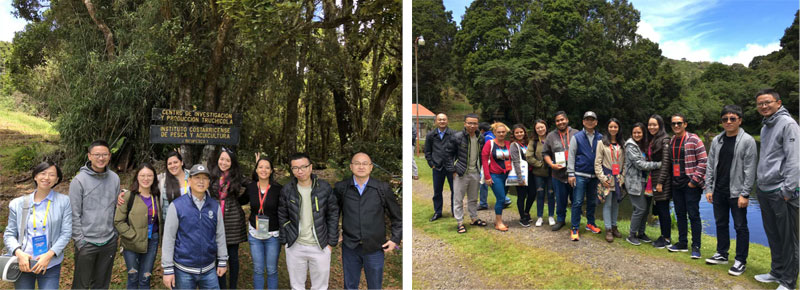
Visiting Rainbow Trout Breeding Base of Fisheries and Aquaculture Association
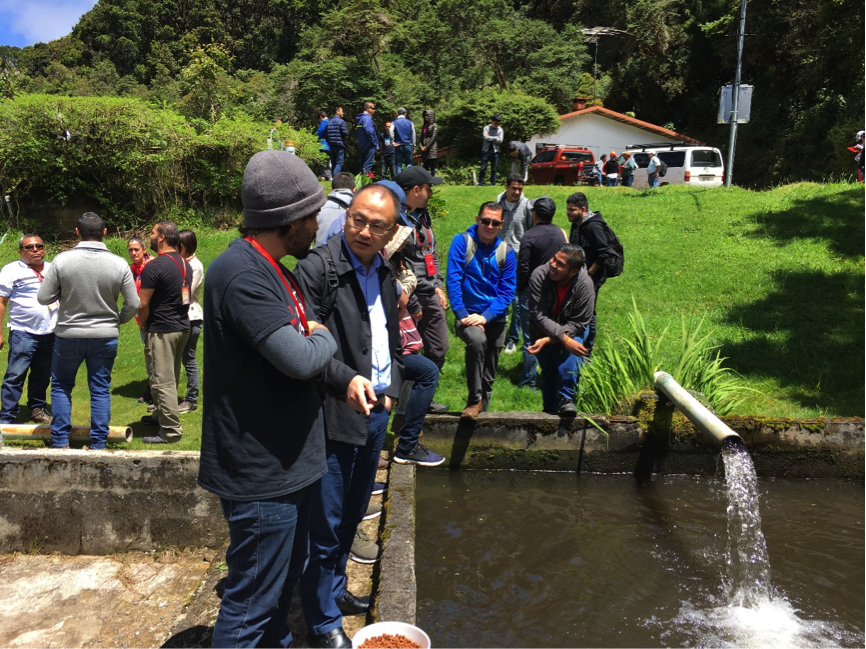
Discussing the rainbow trout farming situation with trainees

Visiting snapper sea cage breeding base
On August 20th, local time, the closing ceremony of the "2018 Costa Rica Marine Fishery Breeding & Aquaculture Training Class " was held in the auditorium of the National University of Costa Rica. Chinese Ambassador to Costa Rica Mr. Tang Heng, Second Vice President of Costa Rica, Rodriguez, National University President Mr. Salom, Deputy Minister of Environment and Energy Rodriguez, Director of the Department of International Cooperation of the Ministry of Foreign Affairs, Mr. Elishondo, and Fisheries Association Executive Chairman Mr. Moog, Deputy Director of the Fujian Ocean Research Institute, Mr. Liu Siguang, Deputy Director of International Exchange Training Center, Mr. Chen Xu, more than 150 people including Chinese staffs and trainees attended the training ceremony.
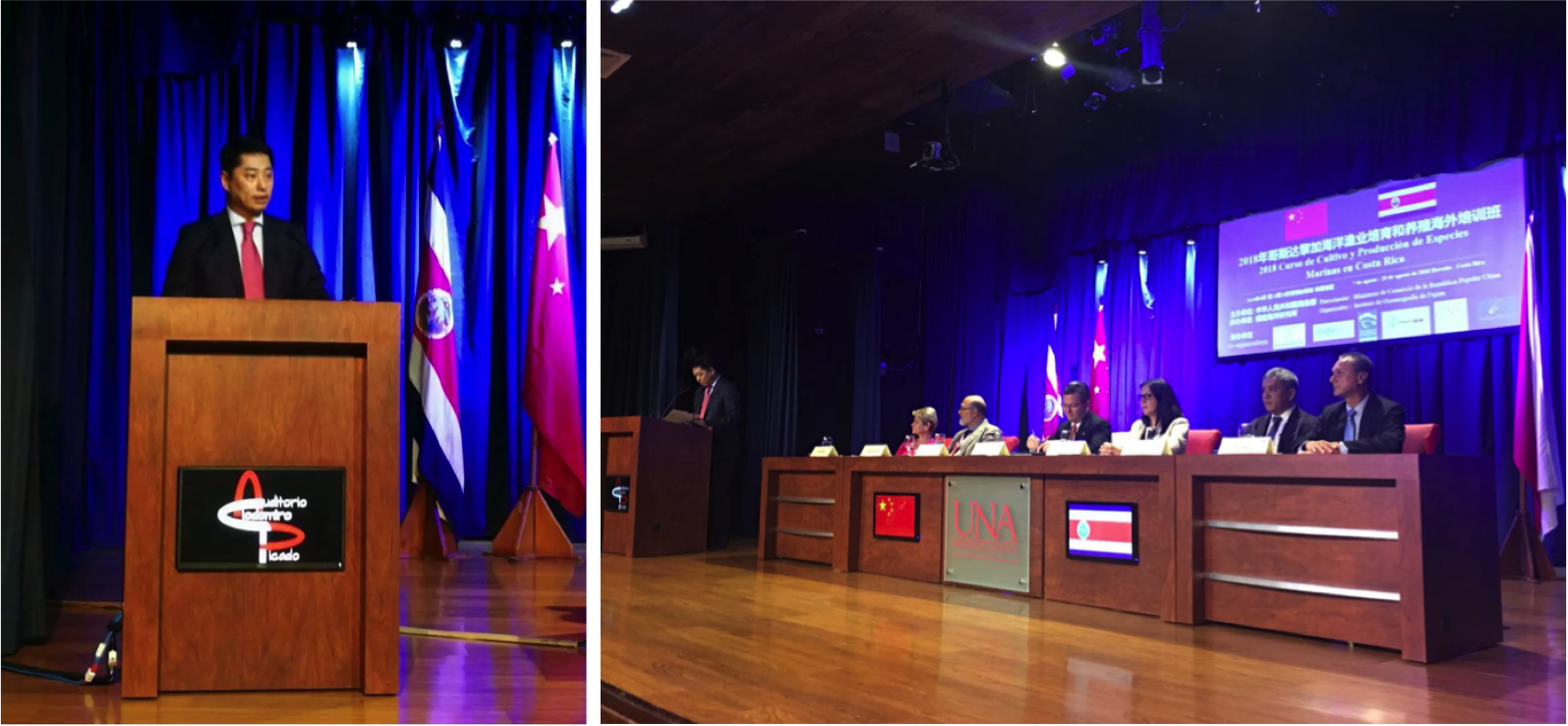
Chinese Ambassador to Costa Rica, Mr.Tang Heng gave a speech
Ambassador Mr. Tang Heng congratulated the training class on its successful opening. He said that as the largest developing country, China has always strived to promote cooperation and help developing countries to train elites. He emphasized that this training closely followed the development of aquaculture and technology upgrading in Costa Rica, and it will further improve the practical aquaculture technology of the Costa Rica, promote the development of marine aquaculture and local employment. He reiterated that China is willing to continue to promote multi-form, multi-disciplinary and multi-level personnel interaction and to create a good foundation for the pragmatic cooperation between China and Costa Rica.

Second Vice President of Costa Rica, Mr. Rodriguez gave a speech
Costa Rica’s second vice president, Mr. Rodriguez, said that “it is better to teach one fishing than give him a fish” and sincerely thanked China for passing the treasure to Costa Rica. He emphasized that the training course is in line with Costa Rica's development requirements and concepts, and it will provide useful support for Costa Rica to fill shortcomings, promote regional balanced development, and achieve sustainable development and utilization of marine resources. It is hoped that the trainees will apply what they have learned and contribute to the economic and social development of Costa Rica and the friendly relations between China and Costa Rica.

Ambassador Mr. Tang Heng and Costa Rica Second Vice President Mr. Rodriguez awarded the certificate to the trainees
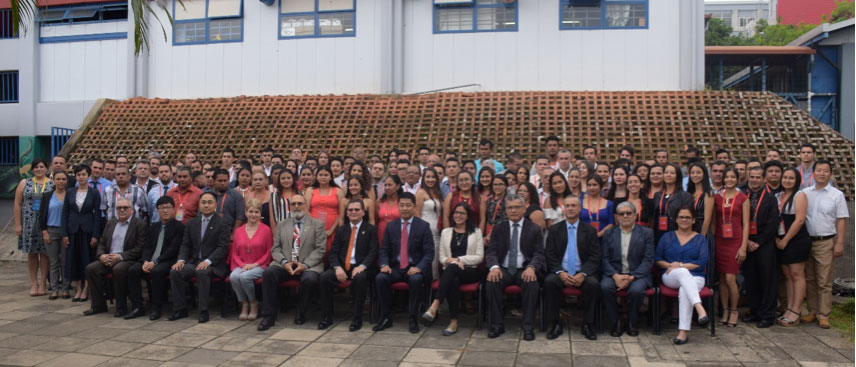
Group photo of Ambassador Mr. Tang Heng and Costa Rica’s Second Vice President Mr. Rodriguez with all trainees
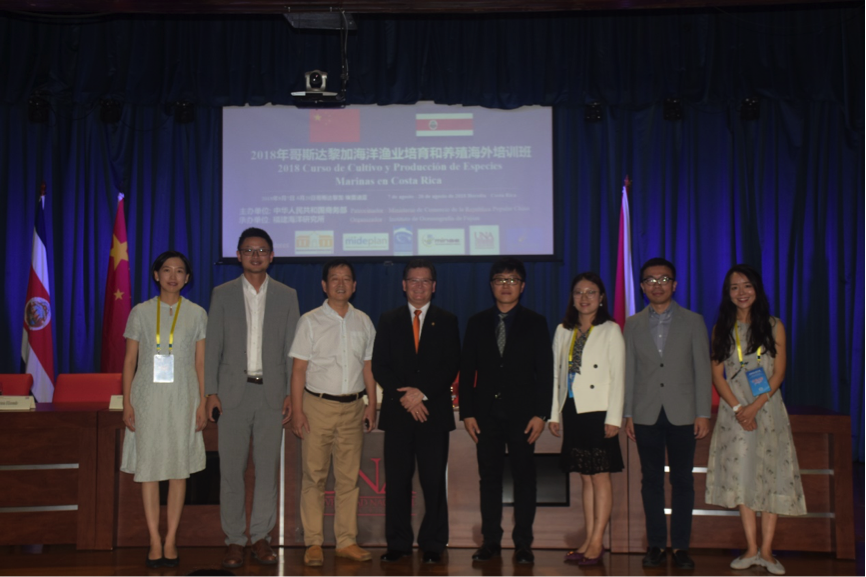
Group photo of Costa Rica’s second vice president Mr. Rodriguez with organizer staffs and lecturers
The China Foreign Aid Training Program is an important implementation component of the concept for “A Community with a Shared Future for Mankind" and the National Strategy of "the Belt and Road". It aims to help developing countries cultivate elites and promote friendly relations, economic and trade cooperation with developing countries. Nutriera Group has been actively practicing the national strategy, vigorously helping the countries along the “the Belt and Road” to develop the aquaculture industry, and making unremitting efforts to provide safe and healthy aquatic products to the world!
Nutriera-Let the world aquaculture hear the voice from China.

